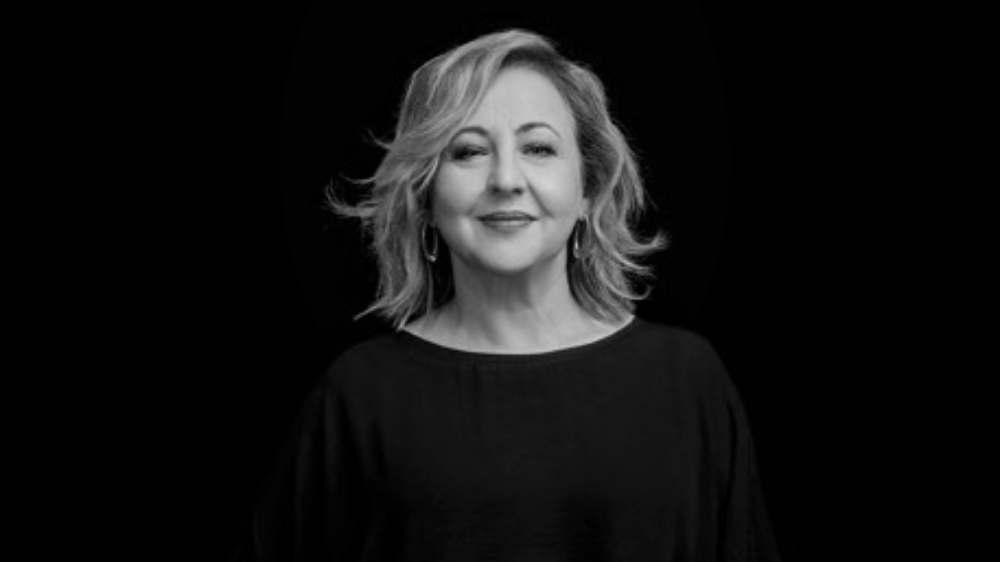TOLEDO, Spain — Carmen Machi (“Piggy,” “30 Coins”), one of the foremost performers of her generation in Spain, is attached to play legendary Barcelona agent Carmen Balcells, prime architect of the Latin American Boom and a key figure in the break out of Gabriel García Márquez and Mario Vargas Llosa to worldwide renown.
Chile’s Invercine, producer of “News of a Kidnapping” which swept April’s Platino Awards, is teaming with Spain’s Abacus, Pausoka and Grupo Lavinia to develop and produce “Boom Agency” (“La Agencia del Boom”) which turns on Balcells extraordinary life, achievement and personality. The deal was confirmed to Variety at Conecta Fiction.
The series also turns on Balcells’ worst nightmare, the rupture of the deep friendship between her star writers, Mario Vargas Llosa and Gabriel García-Marquez, whose rift broke the back of the Boom.
Spain’s Oscar Pedraza, co-director of HBO España’s “Patria,” is attached to direct. Colombians Verónica Triana (“News of a Kidnapping”) and Alvaro Perea (“Cuando Colombia se volvió Macondo”) are penning the scripts. Invercine’s Matias and Macarena Cardone, Abacus’ Marc Roma, Pausoka’s Xabi Zabaleta and Grupo Lavinia’s Ruben Mayoral serve as executive producers.
“This co-production is a great strategic alliance with an incredible synergy in all the creative processes where we have mixed talent from different countries which has strengthened the story and made it more attractive when looking for finance, and creating different business models, while choosing the best strategy,” said Macarena Cardone.
A legend in literary circles, Balcells is relatively unknown to the general public. She established the Carmen Balcells Literary Agency in 1956 at the age of 25 in a fusty Spain still under the arcane rule of Francisco Franco’s dictatorship but rocked by tourism, then the Beatles and Cuba’s Revolution.
She had everything against her. She was born in a village, rather than into Barcelona’s elite. She championed Latin American writers when Barcelona looked up to France. Most of all, she was a woman. “Your problem, Carmen,” José Manuel Lara, head of Planeta, Spain’s biggest publishing house, once told her in public, “is that you don’t fuck.” Balcells burst into tears.
“Carmen Balcells is a young woman who attempts to find her way in a machista and intellectual society of the time, to show that she’s capable of giving world fame to writers such as Gabriel García Márquez and Mario Vargas Llosa,” “Boom Agency’s” logline runs.
“So this means breaking a few rules on the way, sacrificing her family life and becoming a kind of omniscient God who attempts to control everything,” it went on.
Balcells’ luck was to champion writers who were revolutionizing Latin American literature, abandoning its stolid social realism for a belated but thorough-going modernism, heavily influenced by William Faulkner, multiplying character voices, shuttling from different time-periods in novels sluiced by anti-authority politics, slang, corrosive common language and the libertinism of the ‘60s.

One example: “At what precise moment had Peru fucked itself up?” Santiago Zavala, the co-protagonist of Mario Vargas-Llosa’s “Conversation in the Cathedral,” asks in its second sentence.
The series’ may draw on something of this style. “The idea is to mix many time periods dynamically, moving from past to present in a highly visual, fast-paced way with an acid humor, so that those who lived at that time will be moved and new generations will want to know more,” Pedraza said.
Balcells also put through her own revolution, abandoning all-rights longterm contracts with Spanish publishers to split up specific rights, crucially keeping back translation deals which she then sold for sometimes lucrative sums.
The worldwide fame of Gabriel García Márquez is based on the flamboyant “magical realism” of “100 Years of Solitude.” But it also owed much to the commercial aggression of Balcells, which, for example, allowed a young Vargas Llosa to dedicate himself totally to writing.
“Vargas Llosa, García Márquez, Donoso, Vázquez Montalbán…. Spanish-language literature’s Golden Age cannot be understood without the incredible contribution of Carmen Balcells, a woman ahead of her time who was visionary and passionate. As producers we believe the story is well-worth telling: the lives of its protagonists are on a par with their fantastic work,” said Zabaleta.
To be able to control their careers, Balcells offered to put Vargas Llosa and García Márquez on monthly stipends if they relocated to Barcelona. Both did.
“This is an organic co-production between Latin America and Spain, which unspools in the ‘70s in Barcelona which is where the Latin American Boom took place,” Matías Cardone added.
Read More About:
Source: Read Full Article



